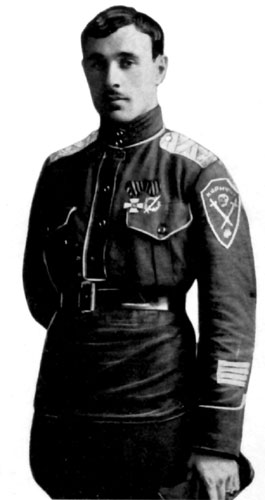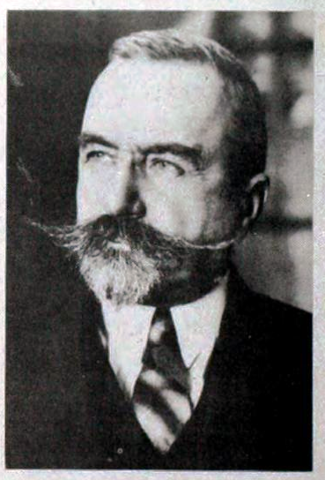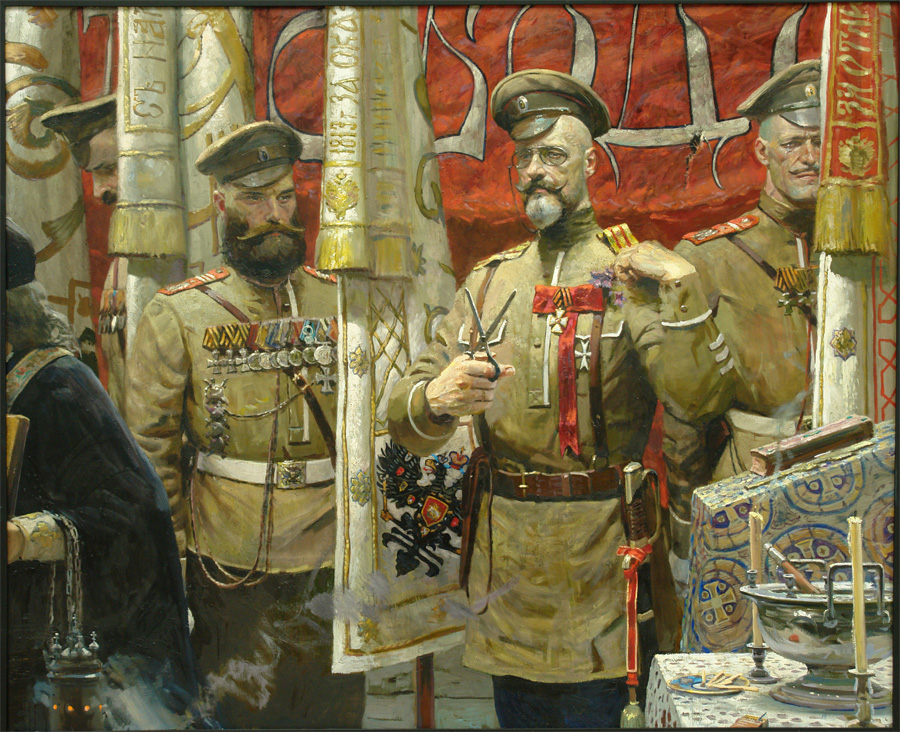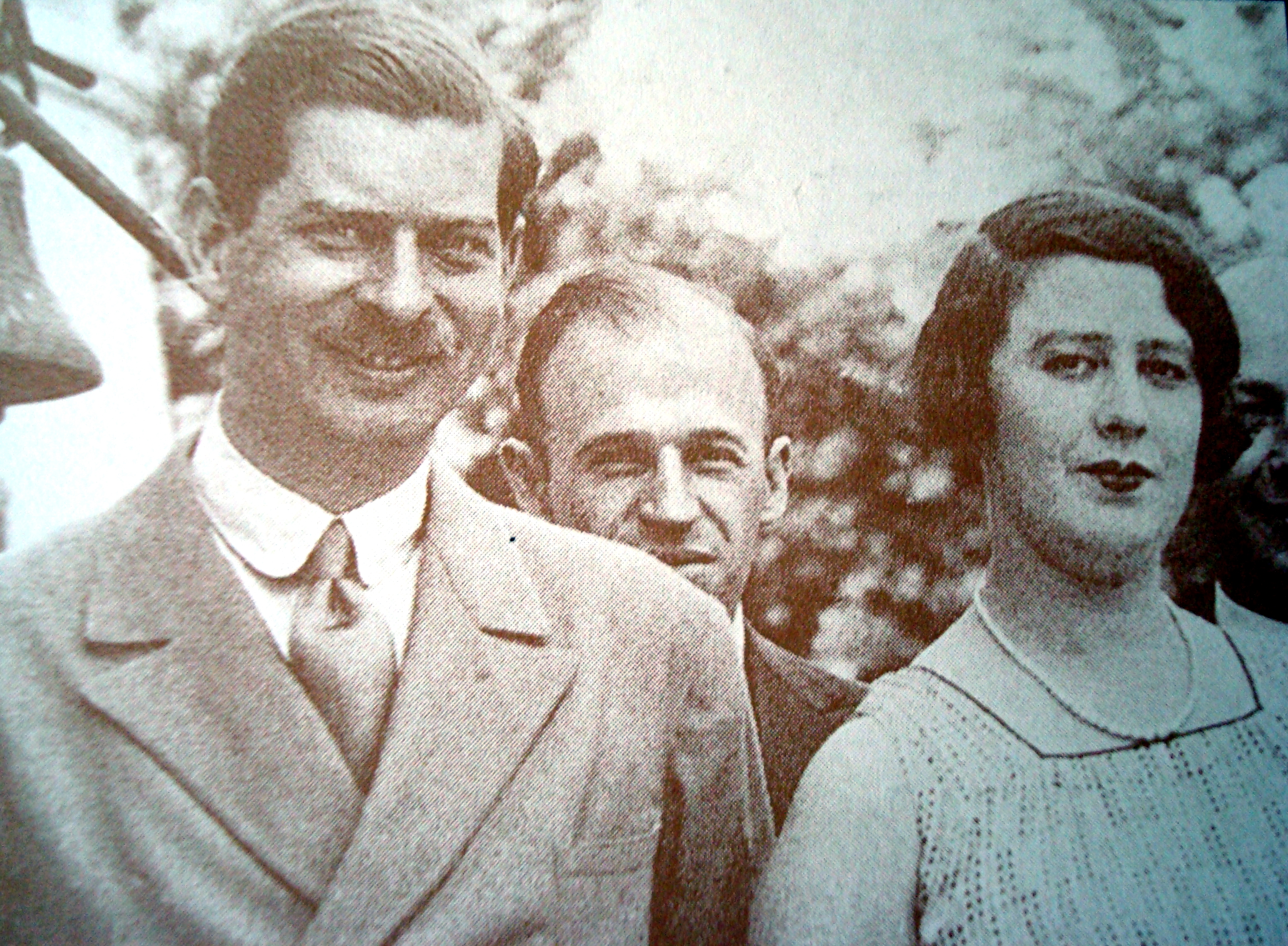|
Skoblin
Nikolai Vladimirovich Skoblin (russian: Николай Владимирович Скоблин; 9 June 1892 – 1938?) was a general in the White Russian army, a senior operative in the émigré expatriate Russian All-Military Union (''ROVS'') and a recruited Soviet spy, who acted as an intermediary between the NKVD and the Gestapo in the Tukhachevsky affair and was instrumental in the abduction of the ROVS chairman Gen Yevgeny Miller in Paris in 1937. He was married to the Russian singer Nadezhda Plevitskaya. A number of important details about his cooperation with the USSR′s intelligence agencies as well as exact circumstances of his death have remained controversial and contested. Early life and Russian Civil War Skoblin was a cavalry officer in Lavr Kornilov′s Division of the White Russian Army during the Russian Civil War, 1918–1920. It is believed that he met his wife, Nadezhda Plevitskaya, during the war. Plevitskaya was a committed Bolshevik considered to be a grea ... [...More Info...] [...Related Items...] OR: [Wikipedia] [Google] [Baidu] |
Skoblin
Nikolai Vladimirovich Skoblin (russian: Николай Владимирович Скоблин; 9 June 1892 – 1938?) was a general in the White Russian army, a senior operative in the émigré expatriate Russian All-Military Union (''ROVS'') and a recruited Soviet spy, who acted as an intermediary between the NKVD and the Gestapo in the Tukhachevsky affair and was instrumental in the abduction of the ROVS chairman Gen Yevgeny Miller in Paris in 1937. He was married to the Russian singer Nadezhda Plevitskaya. A number of important details about his cooperation with the USSR′s intelligence agencies as well as exact circumstances of his death have remained controversial and contested. Early life and Russian Civil War Skoblin was a cavalry officer in Lavr Kornilov′s Division of the White Russian Army during the Russian Civil War, 1918–1920. It is believed that he met his wife, Nadezhda Plevitskaya, during the war. Plevitskaya was a committed Bolshevik considered to be a grea ... [...More Info...] [...Related Items...] OR: [Wikipedia] [Google] [Baidu] |
Nadezhda Plevitskaya
Nadezhda Vasilievna Plevitskaya (russian: Надежда Васильевна Плевицкая; born ''Vinnikova'', russian: Винникова; 17 January 18841 October 1940) was a popular female Russian singer and a Soviet agent. Early life and career Plevitskaya was born Nadezhda Vasilievna Vinnikova to a peasant family in the village of Vinnikovo, near Kursk. She loved to sing, and after two years in a religious chorus, she became a professional singer in Kiev, where she married Edmund Plewicki, a Polish dancer. Soon, they moved to Moscow, where she began singing in the well-known Yar restaurant, whose specialty was gypsy bands with beautiful female singers. While on tour, at a concert in 1909, at the Nizhny Novgorod fair, she was heard by the great tenor Leonid Sobinov. He brought her to the attention of a wider public, which soon included the tsar's family as well as the opera singer Feodor Chaliapin. A Russian song site says: She later married a Lieutena ... [...More Info...] [...Related Items...] OR: [Wikipedia] [Google] [Baidu] |
Yevgeny Miller
Eugen Ludwig Müller (russian: Евге́ний-Лю́двиг Ка́рлович Ми́ллер, tr. ; 25 September 1867 – 11 May 1939), better known as Yevgeny Miller, was a Russian general of Baltic German origin and one of the leaders of the anticommunist White Army during and after the Russian Civil War (1917–1922). After the civil war he lived in exile in France. Kidnapped by Soviet intelligence operatives in Paris in 1937, he was smuggled to the USSR and executed in Moscow in 1939. Early life Miller was a career officer born to a Baltic German aristocratic family in Dünaburg (now Daugavpils, Latvia). After he graduated from the General Staff Academy, he served with the Russian Imperial Guard. Between 1898 and 1907, he was a Russian military attaché in several European capitals, such as Rome, The Hague and Brussels. During the First World War, he headed the Moscow Military District and the 26th Army Corps and was promoted to the rank of lieutenant general. Civil W ... [...More Info...] [...Related Items...] OR: [Wikipedia] [Google] [Baidu] |
Alexander Kutepov
Alexander Pavlovich Kutepov ( rus, Алекса́ндр Па́влович Куте́пов; 28 September 1882 in Cherepovets, Novgorod Governorate, Russian Empire – 26 January 1930 in Paris, France) served as an officer in the anti-communist Volunteer Army during the Russian Civil War of 1917-1923. From 1928 to 1930 he chaired the Russian All-Military Union (ROVS). Зинкевич М. МГенерал Александр Павлович Кутепов- "В течение трёх лет, с конца 1917 и по ноябрь 1920 года, на наших глазах полковник Кутепов вырос в незаурядного начальника крупных войсковых соединений и администратора. ..После смерти генерала, барона П.Н. Врангеля и Великого Князя Николая Николаевича генерал Кутепов стал во главе Русского Общ ... [...More Info...] [...Related Items...] OR: [Wikipedia] [Google] [Baidu] |
Mikhail Tukhachevsky
Mikhail Nikolayevich Tukhachevsky ( rus, Михаил Николаевич Тухачевский, Mikhail Nikolayevich Tukhachevskiy, p=tʊxɐˈtɕefskʲɪj; – 12 June 1937) nicknamed the Red Napoleon by foreign newspapers, was a Soviet general who was prominent between 1918 and 1937 as a military officer and theoretician. After service in World War I of 1914-1917 and in the Russian Civil War of 1917-1923, from 1920 to 1921 he commanded the Soviet Western Front in the Polish–Soviet War. Soviet forces under his command successfully repelled the Polish forces from Western Ukraine, driving them back into Poland, but the Red Army suffered defeat outside of Warsaw, and the war ended in a Soviet defeat. He later served as chief of staff of the Red Army from 1925 through 1928, as assistant in the People's Commissariat of Defense after 1934 and as commander of the Volga Military District in 1937. He achieved the rank of Marshal of the Soviet Union in 1935. As a ma ... [...More Info...] [...Related Items...] OR: [Wikipedia] [Google] [Baidu] |
Reinhard Heydrich
Reinhard Tristan Eugen Heydrich ( ; ; 7 March 1904 – 4 June 1942) was a high-ranking German SS and police official during the Nazi era and a principal architect of the Holocaust. He was chief of the Reich Security Main Office (including the Gestapo, Kripo, and SD). He was also ''Stellvertretender Reichsprotektor'' (Deputy/Acting Reich-Protector) of Bohemia and Moravia. He served as president of the International Criminal Police Commission (ICPC, now known as Interpol) and chaired the January 1942 Wannsee Conference which formalised plans for the " Final Solution to the Jewish question"—the deportation and genocide of all Jews in German-occupied Europe. Many historians regard Heydrich as the darkest figure within the Nazi regime; Adolf Hitler described him as "the man with the iron heart". He was the founding head of the ''Sicherheitsdienst'' (Security Service, SD), an intelligence organisation charged with seeking out and neutralising resistance to the Nazi Part ... [...More Info...] [...Related Items...] OR: [Wikipedia] [Google] [Baidu] |
Russian All-Military Union
The Russian All-Military Union ( rus, Русский Обще-Воинский Союз, abbreviated РОВС, ROVS) is an organization that was founded by White Army General Pyotr Wrangel in the Kingdom of Serbs, Croats and Slovenes on 1 September 1924. It was initially headquartered in the town of Sremski Karlovci.″Главни војни циљ барона Врангела″. // ''Politika'', 7 December 2017, p. 21. The organization′s ostensible purpose was providing aid to the veterans of the Russian White movement (usually of the Imperial Russian Army as well), soldiers and officers alike, who had moved outside the Soviet Union. The organization's undeclared aim was to maintain a Russian military organisation with a view to fighting the Bolsheviks. It and the more monarchist Russian Imperial Union-Order are the oldest organizations that represent the Russian White government-in-exile. Ivan Alexandrovich Ilyin a political philosopher, and white émigré journalist, was ... [...More Info...] [...Related Items...] OR: [Wikipedia] [Google] [Baidu] |
Sergey Spigelglas
Sergey Mikhailovich Spigelglas or Spiegelglass or Shpigelglas (russian: Серге́й Миха́йлович Шпи́гельглас) (29 April 1897 – 29 January 1941) was acting head of the Soviet foreign intelligence service, then part of the NKVD, from February to June 1938. Spigelglas was born into the family of a Jewish bookkeeper in Mosty in present-day Hrodna Voblast, Belarus. After graduating from Warsaw Technical High School, he entered the law school at Moscow University. In 1917 he was drafted into the Russian Army and served as an ensign in the 42nd reserve regiment. Following the October Revolution, he joined the Cheka, and because of his facility with languages—he spoke French, Polish, German, and Russian—he became a member of the Foreign Department. In 1926, he was stationed in Mongolia, perhaps reporting to Yakov Blumkin, where he conducted active intelligence work against China and Japan. In 1930, Spigelglas became the chief undercover agent of the OGPU, ... [...More Info...] [...Related Items...] OR: [Wikipedia] [Google] [Baidu] |
Inner Line
The Inner Line (russian: Внутренняя Линия) was a secret counter-intelligence branch of the Russian All-Military Union (ROVS), the leading Russian White émigré organization. General Alexander Kutepov is credited with setting it up in the mid-1920s.″Оснивање белогвардејских тајних служби: Из тајних архива УДБЕ: РУСКА ЕМИГРАЦИЈА У ЈУГОСЛАВИЈИ 1918–1941.″ // ''Politika'', 13 December 2017, p. 18. An alternative account sees the Inner Line as a group secretly established by Soviet intelligence within the ROVS. Whatever its origin, the Inner Line became subject to severe penetration by OGPU/NKVD.″Неоткривене ћелије советских агената: Из тајних архива УДБЕ: РУСКА ЕМИГРАЦИЈА У ЈУГОСЛАВИЈИ 1918–1941.″ // ''Politika'', 14 December 2017, p. 25. It was seriously discredited after Soviet agents kidnapped ... [...More Info...] [...Related Items...] OR: [Wikipedia] [Google] [Baidu] |
Walter Krivitsky
Walter Germanovich Krivitsky (Ва́льтер Ге́рманович Криви́цкий; June 28, 1899 – February 10, 1941) was a Soviet intelligence officer who revealed plans of signing the Molotov–Ribbentrop Pact after he defected to the West. Early life Walter Krivitsky was born on June 28, 1899, to Jewish parents as Samuel Ginsberg in Podwołoczyska, Galicia, Austria-Hungary (now Pidvolochysk, Ukraine), he adopted the name "Krivitsky," which was based on the Slavic root for "crooked, twisted". It was a revolutionary ''nom de guerre'' when he entered the Cheka, Bolshevik security and intelligence service. Espionage Krivitsky operated as an illegal resident spy, with false name and papers, in Germany, Poland, Czechoslovakia, Austria, Italy, and Hungary. He rose to the rank of control officer. He is credited with having organised industrial sabotage, stealing plans for submarines and planes, intercepting correspondence between Nazi Germany and Imperial Japan, and ... [...More Info...] [...Related Items...] OR: [Wikipedia] [Google] [Baidu] |
Walter Schellenberg
Walter Friedrich Schellenberg (16 January 1910 – 31 March 1952) was a German SS functionary during the Nazi era. He rose through the ranks of the SS, becoming one of the highest ranking men in the ''Sicherheitsdienst'' (SD) and eventually assumed the position as head of foreign intelligence for Nazi Germany following the abolition of the ''Abwehr'' in 1944. Career Schellenberg, born in Saarbrücken, Germany, was his parents' seventh child; his father was a piano manufacturer. Schellenberg moved with his family to Luxembourg when the French occupied (1920) the Saar Basin after the First World War and the Weimar Republic experienced an economic crisis in the early 1920s. Like many young intellectuals who later joined the ''Sicherheitsdienst'' (SD), Schellenberg was deeply affected by the economic woes which befell Germany in the wake of the First World War. Schellenberg returned to Germany to attend university, first at the University of Marburg and then, from 1929, at the ... [...More Info...] [...Related Items...] OR: [Wikipedia] [Google] [Baidu] |
Edvard Beneš
Edvard Beneš (; 28 May 1884 – 3 September 1948) was a Czech politician and statesman who served as the president of Czechoslovakia from 1935 to 1938, and again from 1945 to 1948. He also led the Czechoslovak government-in-exile 1939 to 1945 during World War II. As president, Beneš faced two major crises, which both resulted in his resignation. His first resignation came after the Munich Agreement and subsequent German occupation of Czechoslovakia in 1938, which brought his government into exile in the United Kingdom. The second came about with the 1948 Communist coup, which created the Czechoslovak Socialist Republic. Before his time as president, Beneš was also the first foreign affairs minister (1918–1935) and the fourth prime minister (1921–1922) of Czechoslovakia. A member of the Czech National Social Party, he was known as a skilled diplomat. Early life Birth and family Beneš was born into a peasant family in 1884 in the small town of Kožlany, Kingdom of Bo ... [...More Info...] [...Related Items...] OR: [Wikipedia] [Google] [Baidu] |





.jpg)

